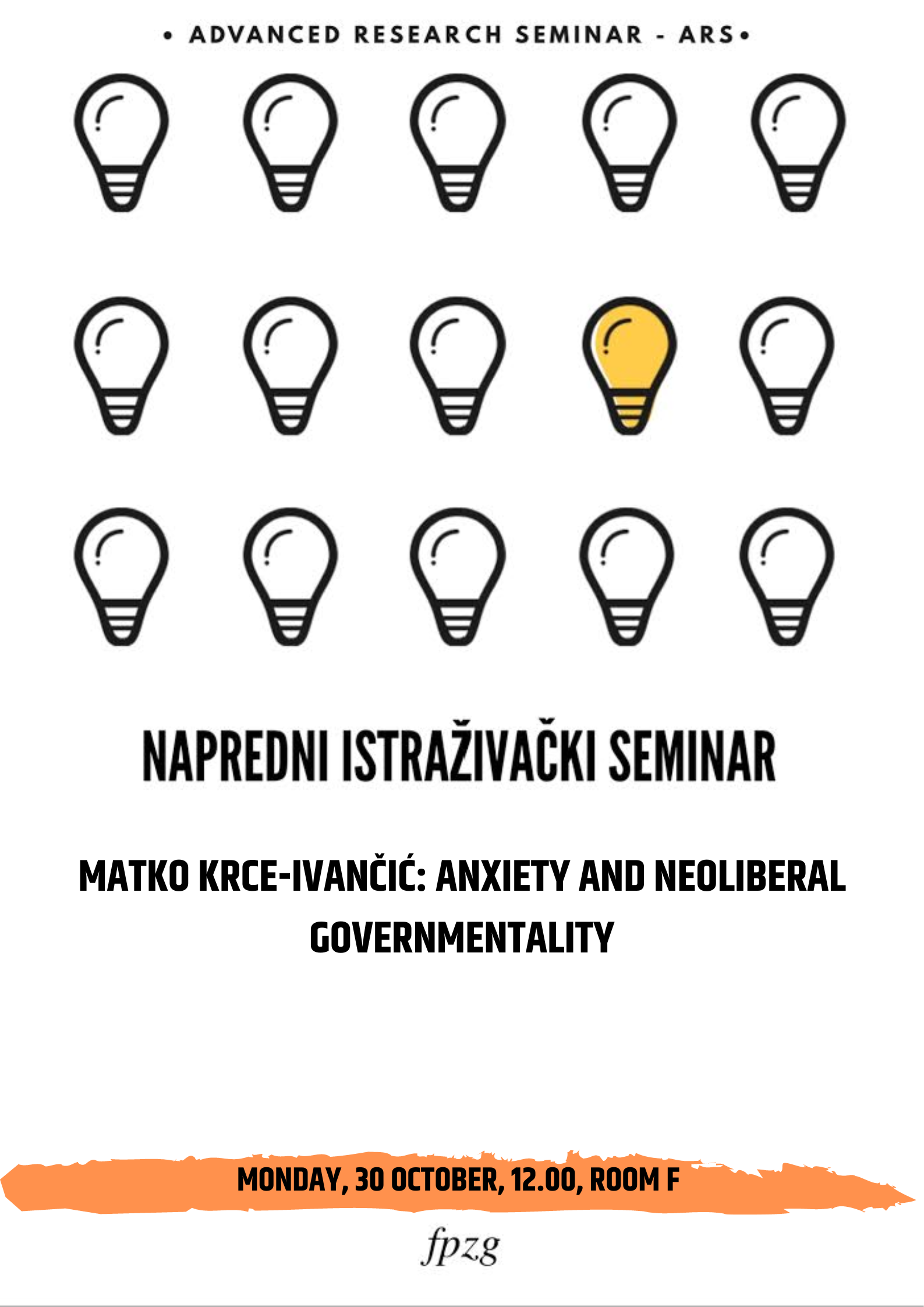Matko Krce-Ivančić: Anxiety and Neoliberal Governmentality, Monday, 30 October, 12.00, Room F
Matko Krce-Ivančić (1990) has a PhD in Sociology from the University of Manchester, United Kingdom (2018). For his PhD project, Krce-Ivančić was awarded President’s Doctoral Scholar Award, School of Social Sciences PhD Studentship and ESRC NWDTC Studentship. His publications include, among others, the following journal articles: ‘Governing through Anxiety’ (Journal for Cultural Research, 2018), ‘The Knowledge of Pessimism’ (Cosmos and History, 2021) and ‘In the Aftermath of the Radical Empiricist Onslaught’ (Critical Horizons, 2021). Funded by the Croatian Science Foundation, currently he is a postdoctoral researcher at the Institute of Social Sciences ‘Ivo Pilar’ in Zagreb, Croatia.
The lecture deals with the relationship between anxiety and neoliberal governmentality, exploring anxiety in a way that allows us to gain a better insight into the concept of neoliberalism. First, I will present the understanding of neoliberalism as proposed by Michel Foucault in his lectures on neoliberalism at the Collège de France, later on published under the title The Birth of Biopolitics. Following this, I will propose an interpretation of the neoliberal imperative, based primarily on my critique of Renata Salecl’s contributions to anxiety scholarship, and clarify some of the ways in which neoliberalism fosters anxiety. In accordance with Foucault’s approach to power, the lecture treats both the state and subjects as the correlatives of governmentality, thus working towards demystifying the role that is attributed to the state in a significant part of Marxist and liberal political theories. The possibility and productivity of understanding neoliberalism as a type of subjectivity, which I consider to be the ultimate lesson of Foucault’s research on neoliberalism, is highlighted. Finally, in order to situate the lecture in its immediate context, I will not only question whether it makes sense to refer to Croatian society as ‘neoliberal’ but also reflect on certain forms of emphasising the harmful consequences of neoliberalism in our society.

 Pristupačnost
Pristupačnost